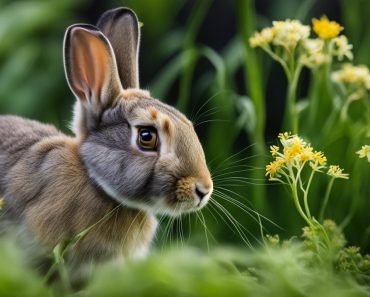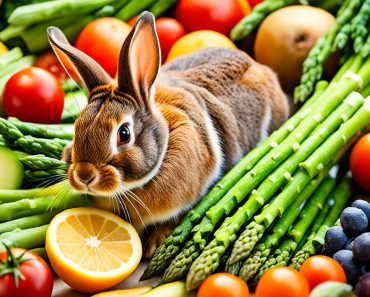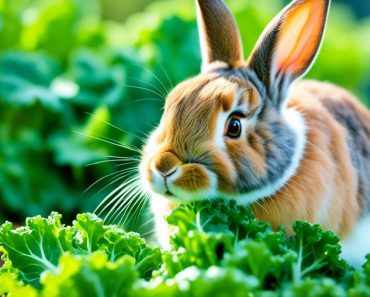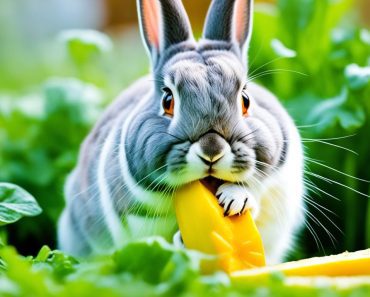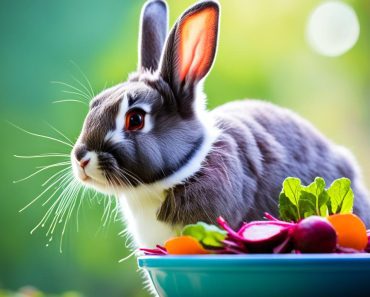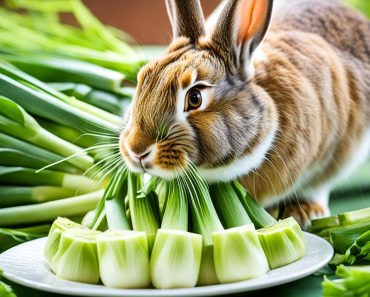As a rabbit owner, I understand the importance of providing a proper diet for my furry friends. One question that often arises is, “Can rabbits eat lettuce?” The answer is yes, but it’s crucial to know which types are safe for them.
While lettuce is a popular leafy green, not all varieties are suitable for rabbits. For example, iceberg lettuce should be avoided as it lacks nutritional value and contains a chemical that can be harmful to rabbits. However, there are other lettuce options that are safe to include in your rabbit’s diet.
Types of lettuce that are safe for rabbits to eat include romaine, red or green leaf lettuce, escarole, and endive. These leafy greens are not only delicious for rabbits but also provide valuable nutrients.
Can Rabbits Eat Lettuce? Yes, with safe precautions.
- Not all lettuce is safe for rabbits, so it’s important to choose the right types.
- Safe lettuce options for rabbits include romaine, red or green leaf lettuce, escarole, and endive.
- Lettuce should be part of a varied diet of leafy greens for rabbits.
- Leafy greens should make up around 15-20% of a rabbit’s overall diet.
- Monitor your rabbit’s weight and adjust the amount of lettuce accordingly.
How Much Lettuce Should I Feed My Rabbit?
Feeding rabbits the right amount of lettuce is crucial for maintaining their health and well-being. The serving size of lettuce for rabbits can vary depending on their weight, as portion control is key to ensuring a balanced diet. As an owner, it is essential to be aware of the rabbit lettuce feeding amount to prevent overfeeding or underfeeding.
On average, it is recommended to feed rabbits about 2 cups of lettuce per 6 pounds of body weight. This serving size should be split into two feedings throughout the day. However, it’s important to note that this is a general guideline and may vary depending on the individual needs and preferences of each rabbit.
Monitoring your rabbit’s weight is crucial in determining the appropriate portion control for their lettuce diet. By observing their weight and overall health, you can adjust the amount of lettuce accordingly. Rabbit lettuce feeding amount should be tailored to each rabbit’s specific requirements to ensure they receive the right nutrition.
Remember that serving size of lettuce for rabbits is just one aspect of their overall diet. It is important to provide a variety of leafy greens to offer a well-rounded and nutritious meal for your furry friend. Lettuce should make up around 15-20% of their vegetable intake, with other rabbit-friendly vegetables included to meet their dietary needs.
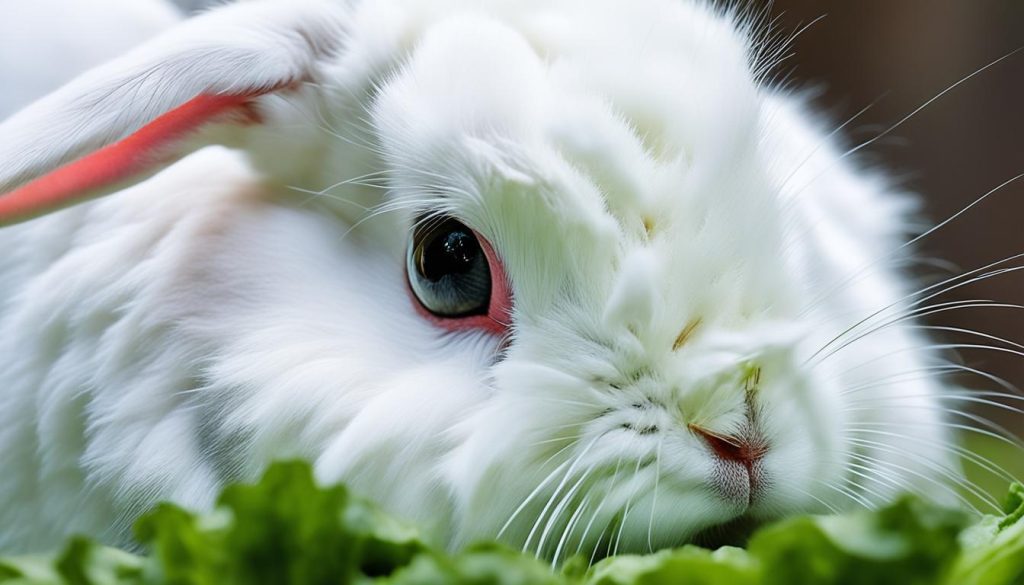
Other Safe Vegetables for Rabbits
In addition to lettuce, there are other vegetables that rabbits can safely consume. Adding a variety of vegetables to your rabbit’s diet is essential to ensure a balanced and nutritious meal. Here are some examples of rabbit-friendly vegetables:
- Parsley
- Cilantro
- Dill
- Basil
- Mint
These vegetables not only provide essential vitamins and minerals but also add flavor and variety to your rabbit’s meals. When introducing new vegetables, it’s important to do so gradually and monitor your rabbit’s response. Some rabbits may have sensitivities or allergies to certain vegetables, so it’s important to observe any adverse reactions and adjust their diet accordingly.
Remember to always prioritize the well-being of your furry friend by offering a diverse range of safe vegetables for a balanced rabbit diet. Your rabbit will appreciate the tasty treats and benefit from the nutritional goodness these vegetables provide.
Vegetables to Avoid Feeding Rabbits
When it comes to the diet of rabbits, it’s important to be aware of the vegetables that can be harmful to them. While there are many safe options, there are certain vegetables that should be avoided to maintain your rabbit’s health and well-being.
First and foremost, vegetables from the onion family, such as onions, garlic, leeks, and chives, should never be fed to rabbits. These vegetables contain compounds that can be toxic to rabbits and may lead to health issues.
Additionally, corn and potatoes should be avoided in a rabbit’s diet. Corn is high in carbohydrates and can cause digestive problems for rabbits, while potatoes have a high starch content that can be difficult for rabbits to digest properly.
It’s crucial to note that rabbits should also steer clear of processed foods, chocolate, and any food that is high in sugar or artificial ingredients. These foods are not suitable for their delicate digestive systems and can lead to various health issues if consumed.
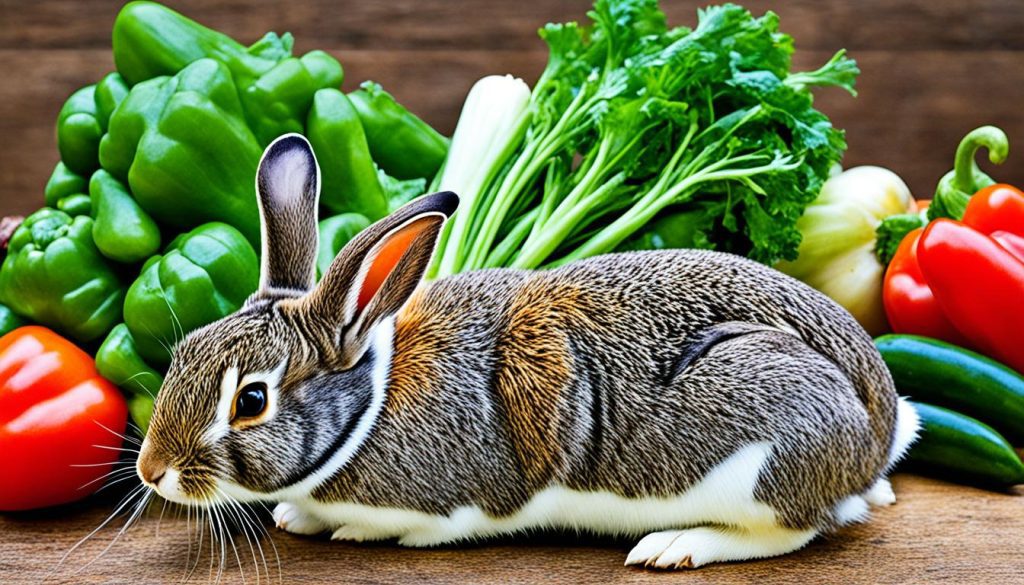
To ensure your rabbit’s diet is safe and nutritious, it’s best to stick to a variety of rabbit-friendly vegetables that do not pose any harm to their well-being. By avoiding these harmful vegetables and offering a balanced diet, you can provide your rabbit with the best care and support their overall health.
Conclusion
It is safe for rabbits to consume certain types of lettuce, including romaine, red or green leaf lettuce, escarole, and endive. These leafy greens should be a significant part of a rabbit’s vegetable intake, comprising approximately 15-20% of their overall diet. It is crucial to offer a variety of vegetables to ensure a balanced and healthy diet for your rabbit.
When introducing new vegetables, it is essential to monitor your rabbit’s response to them. Some rabbits might have sensitivities or allergies to certain vegetables, so it’s important to observe any adverse reactions and make adjustments accordingly. Ensuring safe feeding practices for rabbits is crucial for their well-being.
Remember to avoid toxic vegetables such as onions, garlic, leeks, and chives, as well as plants in the onion family. Additionally, it’s important to refrain from feeding rabbits processed foods, chocolate, or any food high in sugar or artificial ingredients. Opting for leafy greens and other rabbit-friendly vegetables will help promote a healthy rabbit diet and overall health.

